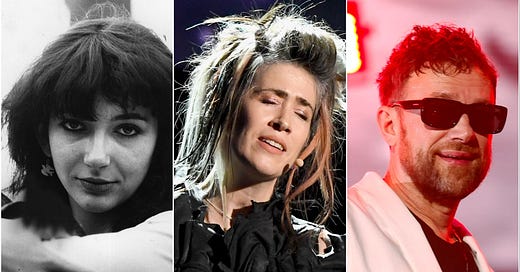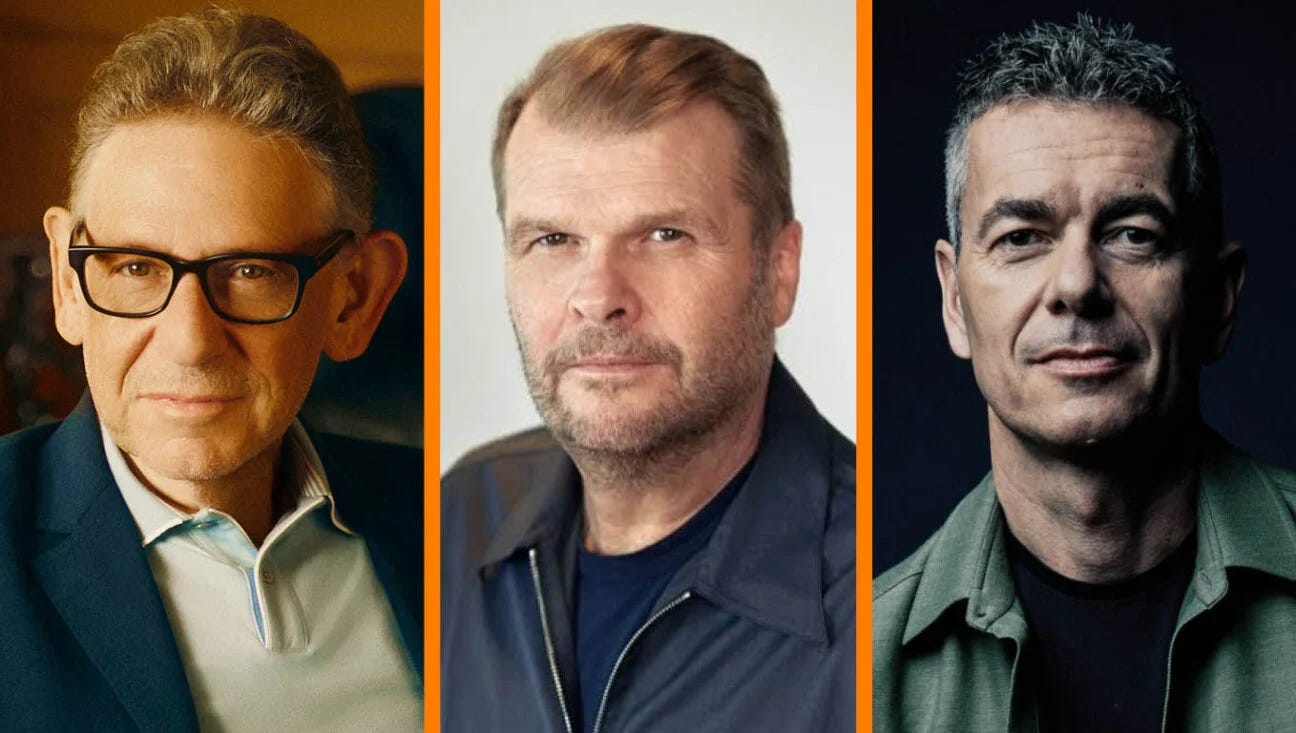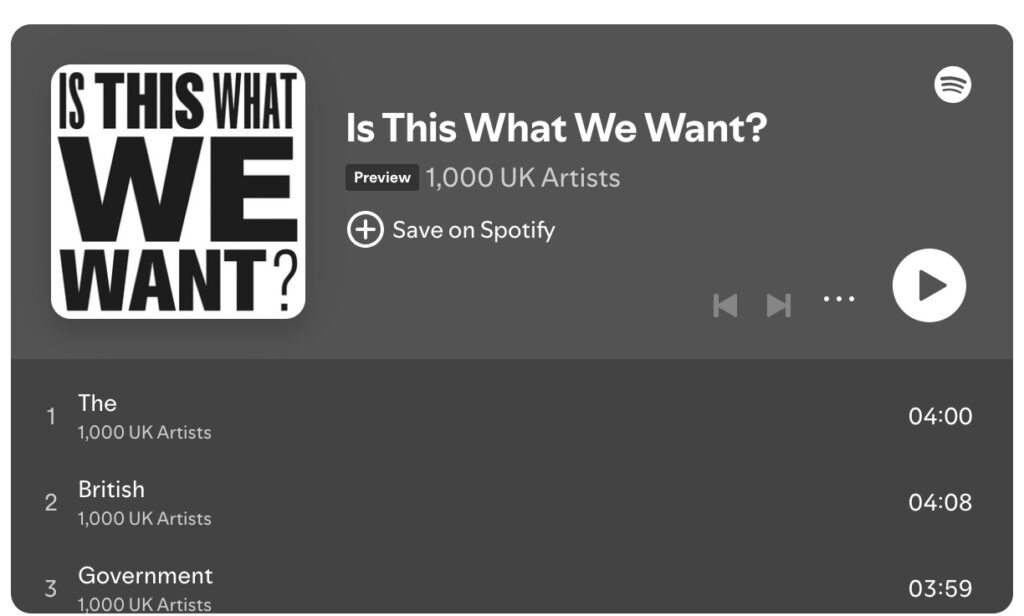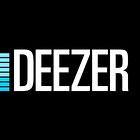The Battle Over AI and Copyright | Why Music Industry Leaders Are Taking a Stand in the UK 🤖🇬🇧
How the UK’s AI Copyright proposal has united Music giants and Artists in defence of Creative Rights
Imagine a world where Artificial Intelligence (AI) can freely mine copyrighted music, art, and literature to train its algorithms without compensating the creators. This is not a dystopian future; it’s a looming reality in the United Kingdom, where proposed changes to copyright law have sparked fierce opposition from some of the most powerful figures in the global music industry.
The UK Labour government’s proposal to create an exception for Text and Data mining (TDM) in AI development has set off alarm bells across Britain’s creative sectors. Critics argue that the reforms could erode intellectual property protections, undermining the livelihoods of artists, songwriters, and other creators.
In response, the heads of Universal Music Group (UMG), Sony Music Group, and Warner Music Group have joined forces with cultural icons like Sir Elton John and Sir Paul McCartney to push back against what they see as a potentially devastating policy shift.
The Proposal | What’s at Stake?
At the heart of this debate is the UK government’s plan to allow AI developers to use copyrighted material for training purposes without obtaining prior permission or offering compensation. This “opt-out” system would require creators to actively reserve their rights if they don’t want their work used which is a stark departure from traditional copyright protections.
The government argues that these changes will make the UK more competitive in AI development, aligning its policies with those of the European Union (EU). The EU’s AI Act, for example, permits data scraping for AI training unless copyright holders explicitly opt out. However, critics point out that even this system has faced backlash from creative industries across Europe.
In January 2025, the UK’s House of Lords voted against key elements of the proposal, but public consultations on the issue are ongoing. With no economic impact assessment conducted by the UK government, industry leaders are questioning whether this approach truly serves Britain’s long-term interests.
Industry Leaders Speak Out
The opposition to the proposal has brought together an unlikely coalition of corporate executives and artists who rarely find themselves on the same side of public debates. Here’s what some of the key players are saying:
Sir Lucian Grainge (Universal Music Group)
Grainge emphasized that intellectual property is a cornerstone of Britain’s global influence.
“The UK stands at a decisive crossroads because what is ‘Made in Britain’ and exported to the world is not limited to physical products but also intellectual property and copyright,”
he said. He warned that weakening these protections could jeopardise the country’s “tremendous soft power.”
Rob Stringer (Sony Music Group)
While acknowledging AI’s transformative potential, Stringer stressed that creators must be fairly compensated.
“AI is going to change the world… however, there can be no question that creators must be rewarded for being part of this technological revolution,”
he said. He argued that safe-guarding existing copyright laws would allow innovation without sacrificing creator rights.
Robert Kyncl (Warner Music Group)
Kyncl issued perhaps the strongest warning, stating that the proposed exception would
“undermine the ability of artists and songwriters… to monetize and control their creative works.”
He called it a threat to Britain’s “world-leading creative community.”
Artists Join the Chorus
The campaign against these reforms isn’t limited to corporate leaders; some of Britain’s most iconic musicians have also voiced their concerns.
Sir Elton John
In an interview with The Times, Elton John described robust copyright protection as “the absolute bedrock of artistic prosperity.” Without it, he warned,
“The UK’s future place on the world stage as a leader in arts and popular culture is under serious jeopardy.”
Sir Paul McCartney
McCartney appealed directly to policymakers, saying, “We’re the people; you’re the government! You’re supposed to protect us.” While acknowledging that AI has legitimate uses such as restoring old recordings; he argued that it should not come at the expense of creators’ rights.
“It shouldn’t rip creative people off,” McCartney said bluntly.
The Broader Implications
This debate extends far beyond music. Visual artists, writers, and even scientists are grappling with similar challenges as AI technologies increasingly rely on copyrighted material for training purposes. Critics argue that shifting the burden onto creators by forcing them to opt out rather than granting automatic protection sets a dangerous precedent across industries.
Supporters of stronger copyright protections also highlight economic concerns. The UK’s creative industries contribute billions to its GDP and employ hundreds of thousands of people. Weakening intellectual property laws could undermine this vital sector at a time when global competition in AI development is heating up.
What Happens Next?
With public consultations on the proposal closing soon, time is running out for stakeholders to make their voices heard. The Daily Mail has launched a high-profile campaign urging readers to oppose the reforms, adding another layer of pressure on lawmakers. Meanwhile, industry leaders are calling for more thorough economic analysis before any changes are implemented.
As Viscount Rothermere put it:
“True, artists could reserve their rights, but why should they carry all the burden of defending their work against exploitation by AI?”
This sentiment underscores a key question facing policymakers, i.e. How can they balance fostering innovation with protecting creators’ livelihoods?
Conclusion | A Call to Action
The UK stands at a pivotal moment in shaping its future as both a hub for AI innovation and a global leader in creative industries. Striking this balance won’t be easy but it is essential. As debates over copyright reform continue, one thing is clear:
Creators deserve a seat at the table when decisions about their intellectual property are being made.
For readers passionate about protecting creativity or advancing ethical AI practices, now is the time to engage with this issue. Whether through public consultation or grassroots advocacy, your voice can help shape policies that respect both innovation and artistry.
What do you think? Should governments prioritize innovation over creator rights or can they achieve both? Share your thoughts in the comments below!
Join us at Vinyl Culture as we continue exploring ways to preserve and evolve authentic Music Culture in an age dominated by algorithms and corporate interests.
Together, we can make a difference.🫱🏼🫲🏽









